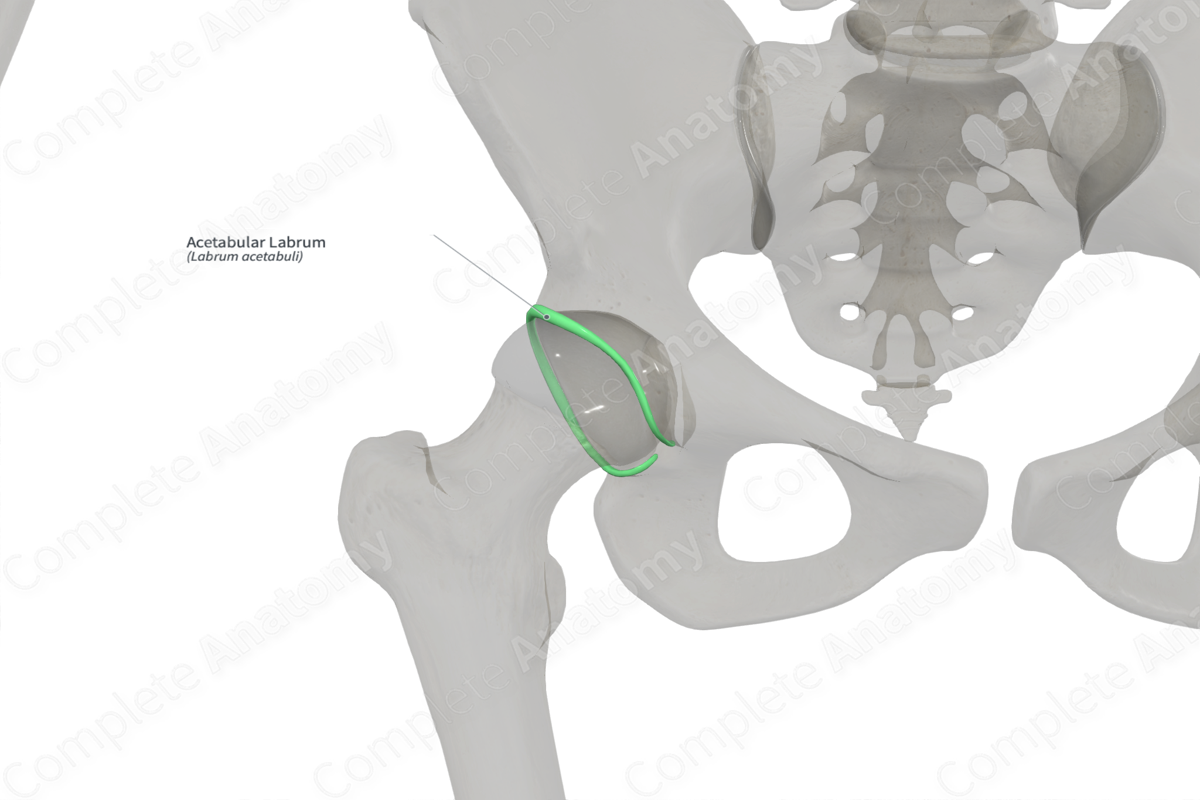
Structure
The acetabular labrum is a tough, incomplete fibrocartilaginous ring that surrounds the acetabulum of the hip. Inferiorly, the incomplete ends of the labrum are joined by the transverse acetabular ligament. It crosses the acetabular notch, thus, forms a foramen through which blood vessels and nerves can gain access to the hip joint. Unlike the acetabular labrum, it is devoid of cartilaginous cells (Standring, 2016).
Related parts of the anatomy
Anatomical Relations
The acetabular labrum is triangular. Its base attaches to the margin of the acetabulum and is continuous with the adjacent articular cartilage. Its free edge extends beyond the margin of the acetabulum. It attaches to the margins of the transverse acetabular ligament, thus bridging the acetabular notch.
Function
The acetabular labrum increases the depth of the acetabular articular area. It plays a role in joint stability as it provides a constriction to the diameter of the acetabular articular cavity where the femoral head fits. Additionally, the acetabular labrum provides a seal to the hip joint, which facilitates maximal intraarticular spread of the synovial fluid. As a result, it aids nutrition of the articular cartilage and reduces intraarticular friction (Standring, 2016).
List of Clinical Correlates
—Labral tears
—Hip joint effusion
—Femoral-acetabular impingement syndrome
—Hip fractures and dislocation
—Congenital dislocation of the hip
References
Standring, S. (2016) Gray's Anatomy: The Anatomical Basis of Clinical Practice. Gray's Anatomy Series 41st edn.: Elsevier Limited.
Learn more about this topic from other Elsevier products


